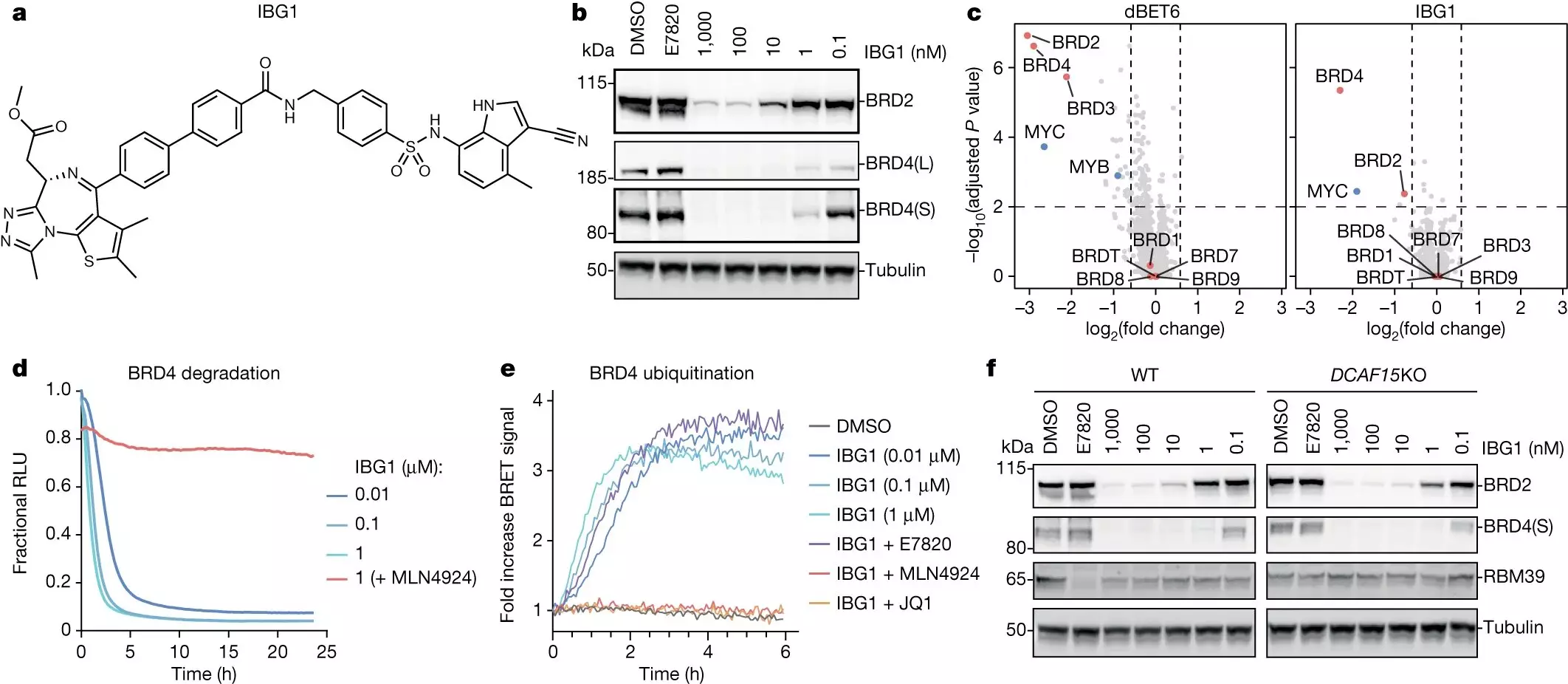The discovery of a breakthrough class of molecular glue at the University of Dundee has the potential to revolutionize the field of drug development. This new class of “intramolecular bivalent glue” identified by Professor Alessio Ciulli and his research team could open doors for the creation of innovative drugs targeting cancers and neurodegenerative diseases.
The newly defined molecular glue works by binding proteins together that would otherwise remain apart. This unique property allows the glue to attach to one protein in two places, effectively sandwiching the two proteins together. This groundbreaking discovery was made possible through the use of Targeted Protein Degradation technology, unveiling a vulnerability that can be exploited for the design of new drugs.
The implications of this research are significant for the pharmaceutical industry, particularly in the development of drugs for cancer, neurodegenerative diseases, and other conditions driven by proteins previously considered undruggable. Targeted protein degradation (TPD) is an emerging field in drug development that aims to destroy disease-causing proteins by redirecting protein recycling systems in our cells. The use of small molecules to recruit target proteins to ubiquitin E3 ligases for destruction is a common strategy in TPD.
The Dundee research team, in collaboration with other institutions such as CEMM and Eisai Co. Ltd., has uncovered a novel mechanism of molecular gluing that differs from previously known mechanisms. This new mechanism involves binding to two sides of the target protein, leading to a rearrangement of the protein and stabilizing its interaction with the E3 ligase.
This groundbreaking work sheds light on previously underappreciated features of molecular glues and sets the stage for further exploration into this field. The discovery of “intramolecular bivalent glues” has the potential to accelerate the development of new classes of drugs and transform the landscape of drug development.
The discovery of this new class of molecular glue at the University of Dundee represents a significant milestone in the field of drug development. The potential applications of this discovery in targeting cancers, neurodegenerative diseases, and other conditions driven by proteins open up new possibilities for the treatment of previously untreatable diseases. With further research and exploration, the impact of molecular glues on drug development is bound to grow, paving the way for innovative and effective treatment options for patients worldwide.


Leave a Reply